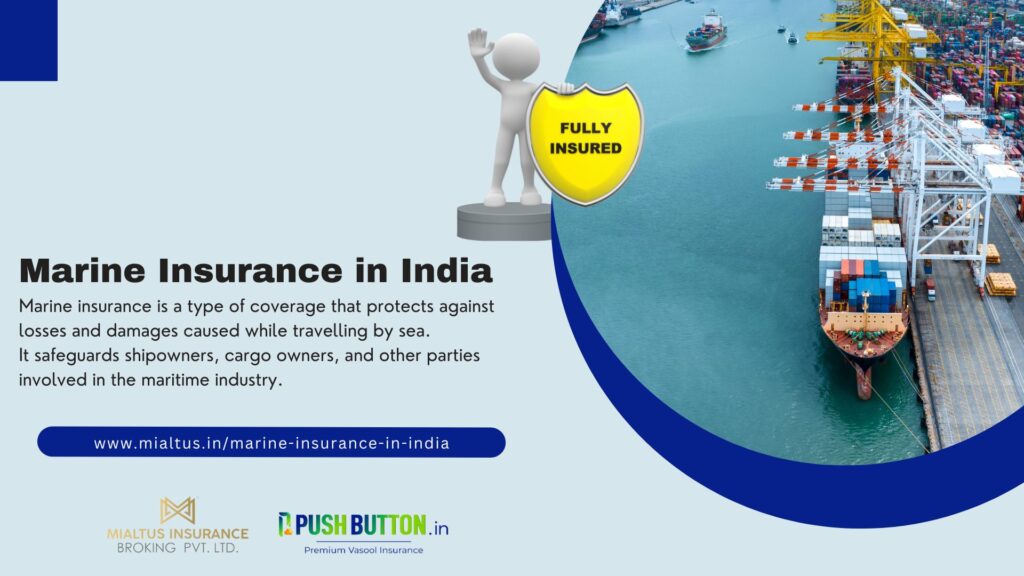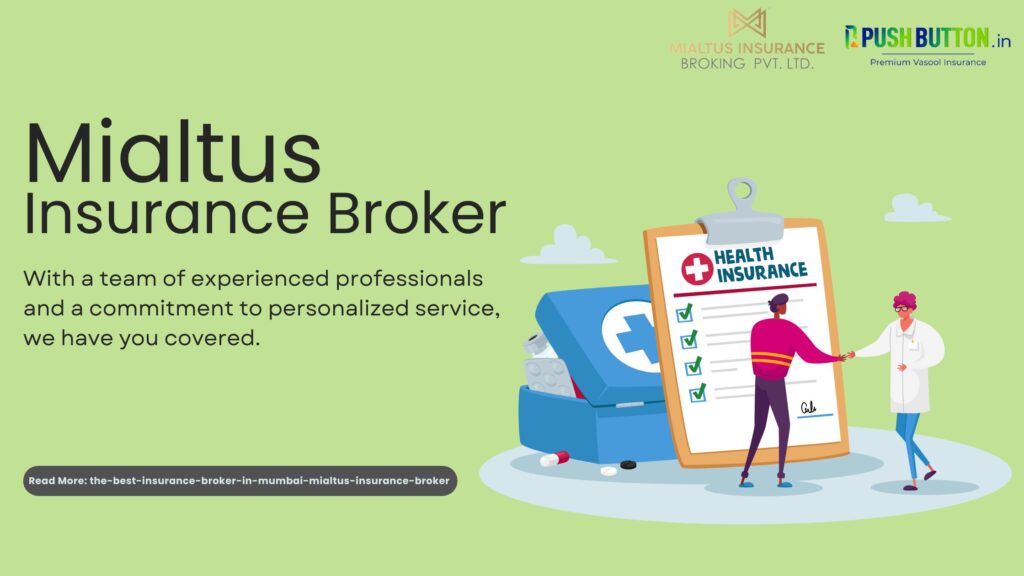As the monsoon season arrives in India, it brings relief from the hot summer heat and opens the door to numerous health challenges. The increased humidity and water accumulation create an ideal breeding ground for various illnesses. We aim to shed light on the common illnesses that prevail during the monsoons in India and emphasize the importance of having insurance coverage to protect individuals and families from unexpected medical expenses.

Respiratory Infections:
- Cold and Flu: Discuss the prevalence of common colds and influenza during the monsoon season, highlighting their symptoms, causes, and preventive measures. Emphasize the significance of maintaining good personal hygiene and avoiding crowded areas.
- Allergies and Asthma: Explore how the increased moisture and mold growth during monsoons can trigger allergies and exacerbate asthma symptoms. Highlight the importance of proper medication management and maintaining clean indoor environments.
Waterborne Diseases:
- Dengue Fever: Shed light on dengue fever, a mosquito-borne viral infection that thrives during the monsoon season. Discuss its symptoms, prevention, and the importance of eliminating stagnant water to control mosquito breeding.
- Cholera and Typhoid: Explain the risk factors, symptoms, and preventive measures for waterborne diseases like cholera and typhoid fever. Highlight the importance of safe drinking water, proper hygiene, and vaccination.
Gastrointestinal Infections:
- Food Poisoning: Discuss how the monsoon season increases the risk of food contamination, leading to foodborne illnesses. Address the importance of consuming hygienic food, avoiding street food, and maintaining proper food handling practices.
- Diarrhea and Dysentery: Explore the causes and prevention of gastrointestinal infections during the monsoons, emphasizing the significance of clean water consumption and hygienic food preparation.
Insurance Coverage for Monsoon-Related Illnesses:
- Health Insurance: Highlight the role of health insurance in providing financial protection against medical expenses arising from monsoon-related illnesses. Discuss coverage for hospitalization, diagnostic tests, medications, and follow-up care.
- Critical Illness Insurance: Explain the benefits of critical illness insurance, which provides coverage for specific illnesses, including those prevalent during the monsoons. Discuss the importance of understanding policy terms, coverage limits, and waiting periods.
Preventive Measures:
- Personal Hygiene: Emphasize the importance of maintaining personal hygiene, including regular handwashing, avoiding contaminated water, and using mosquito repellents.
- Vaccinations: Highlight the significance of immunizations for diseases like dengue, typhoid, and influenza. Encourage individuals to consult their healthcare providers for the appropriate vaccinations.
Conclusion:
As the monsoon season arrives in India, it brings with it an increased risk of common illnesses. Individuals can safeguard their health by understanding the prevalent diseases and taking the necessary precautions. However, it is equally important to secure adequate insurance coverage to protect against unforeseen medical expenses. Comprehensive health insurance and critical illness insurance provide financial peace of mind, ensuring that individuals can access quality healthcare without the burden of excessive medical costs. Prioritizing both health and insurance coverage allows individuals and families to enjoy the monsoons while staying prepared for any health-related challenges that may arise.
If you need any insurance coverage or have any insurance-related inquiries, please don’t hesitate to contact us. Our experienced team is ready to assist you and provide the best insurance solutions tailored to your needs. Reach out to us today for a consultation to secure your financial future.

Receiving your first salary is a big day in your life. It represents the start of your financial freedom and provides an opportunity to make wise decisions that will create a foundation for a secure future. While it may be easy to focus on the short term, it is critical to examine how insurance can play an important role in protecting your financial well-being. In this blog, we will look at four sensible ways to spend the first salary you receive while keeping insurance in mind, and we will back up our ideas with informative statistics.
Create an Emergency Fund:
Statistics show that a significant percentage of individuals are unprepared for unexpected financial emergencies. Start by allocating a portion of your first salary towards building an emergency fund. This fund acts as a safety net during challenging times, such as unexpected medical expenses, car repairs, or job loss. Experts suggest saving at least three to six months’ worth of living expenses in an easily accessible account. By setting aside a portion of your salary for emergencies, you can face unforeseen circumstances with confidence, knowing that you have a financial cushion to rely on.
Invest in Health Insurance:
Healthcare costs are on the rise, making it crucial to prioritize your well-being by investing in a comprehensive health insurance plan. Research indicates that a large number of individuals face financial hardship due to medical expenses, often resulting in long-term debt or depleted savings. Use a portion of your first salary to secure a health insurance policy that provides coverage for hospitalization, outpatient treatments, and critical illnesses. Remember, early investment in health insurance ensures lower premiums and broader coverage options.
Protect Your Assets with Insurance:
As you start building your life, it is essential to protect your valuable assets. Whether it’s your first car, rented apartment, or prized possessions, insurance provides a safety net against potential risks. Look into auto insurance to protect your vehicle from accidents and theft. Renter’s insurance offers coverage for your personal belongings in case of fire, theft, or other covered events. By allocating a portion of your salary towards these insurance policies, you can have peace of mind knowing that your assets are protected.
Start Saving for Retirement:
While retirement may seem distant, it is never too early to start saving for your golden years. Take advantage of the power of compounding by investing a portion of your salary in retirement plans such as a 401(k) or Individual Retirement Account (IRA). Studies show that individuals who start saving for retirement early have a significant advantage due to the compounding effect over time. By setting aside a percentage of your salary towards retirement, you are ensuring a financially secure future and allowing your money to work for you.
Conclusion:
As you embark on your professional journey and receive your first salary, it is essential to make wise financial decisions. Allocating your earnings towards building an emergency fund, investing in health insurance, protecting your assets, and saving for retirement sets the stage for a secure and prosperous future. By incorporating insurance into your financial plan, you are taking proactive steps to mitigate risks and protect yourself from unexpected events. Remember, the choices you make today will shape your financial well-being tomorrow. So, make smart choices, invest in your future, and enjoy the fruits of your hard work.
If you are in need of any insurance coverage or have any insurance-related inquiries, please don’t hesitate to contact us. Our experienced team is ready to assist you and provide the best insurance solutions tailored to your needs. Reach out to us today for a consultation and secure your financial future.

Marine insurance is a type of coverage that protects against losses and damages caused while traveling by sea. It safeguards shipowners, cargo owners, and other parties involved in the maritime industry. Marine insurance has been an essential component of global trade for centuries, and it is no different in India. The Indian marine insurance market has a long history dating back to the nineteenth century. This article will dig deeper into the world of marine insurance in India, discussing its various types, features, claim process, and regulatory framework.
The Importance of Marine Insurance in India
Marine insurance is critical to the Indian economy because the country is heavily reliant on sea trade. According to the Ministry of Shipping, the sea transports more than 90% of India’s trade by volume and 70% by value. The Indian coastline is also a popular tourist destination, with millions of people traveling by sea each year. Marine insurance makes sure that the risks of sea transportation are managed and that any losses or damages are compensated for.
Furthermore, marine insurance is required by Indian law. Every Indian ship is required to have a valid hull insurance policy; failure to comply can lead to penalties and even ship detention. Likewise, many countries require ships entering their ports to have valid marine insurance.
Types of Marine Insurance
Marine insurance in India is divided into the following categories:
- Hull Insurance: Physical damage to the ship and its machinery caused by perils such as storms, collisions, and fires is covered by hull insurance. It also covers the shipowner’s liability for third-party property or personal damage. The Merchant Shipping Act of 1958, which requires every Indian ship to have a valid insurance policy, makes hull insurance mandatory.
- Cargo Insurance: Cargo insurance protects the goods transported by sea from loss or damage. The cargo owner, shipper, or customer can purchase it. Cargo insurance can protect against a wide range of risks, including theft, damage, and loss caused by weather or accidents.
- Freight Insurance: This type of insurance protects the moving company against loss of transportation charges caused by cargo damage or loss.
- Liability Insurance: This type of insurance covers the shipowner’s or operator’s legal liabilities for third-party damages, such as collisions with other ships or damage to ports or other facilities.
Features of Marine Insurance in India
The following are the features of Marine Insurance in India:
- Voyage or Time Policies: Marine insurance policies can be voyage-specific or time-specific. Voyage policies cover a specific voyage, while time policies cover a specific time period, usually a year.
- Valuation: The valuation of the insured subject matter, such as the ship or cargo, is crucial in determining the premium and compensation in case of loss.
- Risk Coverage: Marine insurance policies in India cover various risks, including perils of the sea, piracy, war, and other maritime risks.
- Institute Cargo Clauses (ICC): These clauses define the risks covered by the policy and the compensation payable in case of loss or damage.
Marine Insurance in India Claim Process
The claim process for marine insurance in India typically involves the following steps:
- Notify the insurer: The insured must notify the insurer of any loss or damage as soon as possible. The notice should include the policy number, date and time of the loss, location, and nature of the loss or damage.
- Provide documents: The insurer will require documents such as the policy document, shipping documents, invoice, and any other relevant documents related to the loss or damage.
- Survey and inspection: The insurer will appoint a surveyor or inspector to assess the extent of the loss or damage. The surveyor or inspector will prepare a report and submit it to the insurer.
- Settlement of claim: Based on the surveyor’s report, the insurer will determine the amount of the claim and settle the claim accordingly.
- Dispute resolution: If there is any dispute regarding the settlement amount, the parties can resolve the dispute through arbitration or in court.
Regulatory Framework of Marine Insurance in India
The Insurance Regulatory and Development Authority of India (IRDAI) oversees the set of regulations for marine insurance in India. The IRDAI governs the operations of insurance companies in India, including marine insurers. Furthermore, the Indian Marine Insurance Act of 1963 establishes the legal foundation for marine insurance policies in India. The act defines insurers’ and insurance companies’ rights and responsibilities, as well as guidelines for claim settlement.
Conclusion
Finally, marine insurance is a critical component of India’s maritime industry. It protects shipowners, cargo owners, and other maritime trade participants against loss or damage. The Indian marine insurance market provides hull insurance, cargo insurance, freight insurance, and liability insurance. These policies differ in terms of voyage or time policies, valuation, and risk coverage. The IRDAI and the Indian Marine Insurance Act of 1963 govern the regulatory framework for marine insurance in India.
As the financial capital of India, Mumbai is home to a vast array of insurance brokers. With so many options to choose from, finding the right insurance broker in Mumbai can be a daunting task. But if you’re looking for the best insurance broker in Mumbai, there’s one name that stands out above the rest: Mialtus Insurance Broker.

At Mialtus, we understand that insurance is a complex and often confusing field. That’s why we have assembled a team of experienced professionals who are committed to providing personalized service to our clients. Whether you’re a small business owner or an individual looking for coverage, we have you covered.
One of the things that set us apart from other insurance brokers in Mumbai is our commitment to transparency. We believe that our clients deserve to know exactly what they’re getting, which is why we work closely with them to identify their needs and find the best coverage at the most affordable rates.
Our team of professionals has years of experience in the insurance industry, and we stay up-to-date with the latest trends and developments to ensure that our clients always have access to the best options available. We offer a wide range of insurance products, including health insurance, life insurance, property insurance, and more.
In addition to our commitment to personalized service and transparency, we are also proud to offer a convenient and hassle-free experience for our clients. Whether you prefer to communicate with us in person, over the phone, or online, we are always available to answer your questions and provide support.
If you’re looking for the best insurance broker in Mumbai, look no further than Mialtus Insurance Broker. Contact us today to learn more about how we can help you find the coverage you need at a price you can afford.
If you’re looking for a easy way to compare and buy insurance online, kindly check Pushbutton is the perfect solution.
Life insurance is a crucial aspect of financial planning that most people tend to ignore. It is a policy that guarantees financial stability to your loved ones in case you die. The benefits of life insurance are numerous, and you must consider purchasing one for your family’s sake.

The primary benefit of life insurance is providing financial security for your loved ones. Life insurance pays a tax-free lump sum amount to your beneficiaries in case of your death. These payments can cover funeral costs, outstanding debts, and living expenses. It ensures your family members do not have to worry about their financial future in your absence.
These customizable policies allow you to choose the coverage that suits your needs. You can opt for a term life insurance policy that provides coverage for a specific period or a permanent policy that offers a lifelong range. The amount of coverage can be adjusted depending on your income, debts, and financial goals.
Another significant benefit is its ability to pay off debts and mortgages. Your beneficiaries can use the payout to pay off outstanding debts such as a mortgage, credit cards, and car loans. It prevents your family from losing their assets and home due to financial difficulties.
These policies can also serve as an investment tool. Some policies offer a cash value component, and life insurance is a crucial aspect of financial planning that most people tend to ignore. It is a policy that guarantees financial stability to your loved ones in case you die. The benefits of life insurance are numerous, and you must consider purchasing one for your family’s sake.
Lastly, life insurance policies provide peace of mind. Knowing that your loved ones are financially secure and their future is taken care of can relieve you of stress and anxiety. You can focus on living fully, knowing your family is protected.
In conclusion, life insurance is a critical component of financial planning that must be addressed. Its benefits include financial security for your loved ones, customizable coverage, debt and mortgage payments, investment opportunities, and peace of mind. By purchasing a life insurance policy, you can ensure that your family’s future is secure, no matter what the future holds.
Traveling can be an exciting and enriching experience, but it can also come with unforeseen risks and unexpected expenses. Travel insurance is an important tool that can provide peace of mind and financial protection during your trip. Whether you are traveling domestically or internationally, travel insurance can help you deal with unexpected events such as illness, injury, trip cancellations, or lost baggage. In this article, we will explore the importance of travel insurance and how it can benefit you during your travels.

Medical Emergencies
Medical emergencies can happen at any time and can be particularly challenging when you are away from home. While many countries have public health systems, they may not be available to tourists, and you may have to pay for medical treatment out of your own pocket. This can be an expensive proposition, particularly if you need hospitalization, surgery, or repatriation. Travel insurance can provide coverage for medical expenses, including emergency medical treatment, hospitalization, and repatriation, giving you the peace of mind that you can get the care you need without worrying about the costs.
Trip Cancellation and Interruption
Trip cancellations and interruptions can happen for a variety of reasons, including illness, injury, death in the family, or natural disasters. These events can result in lost deposits, non-refundable airline tickets, and other expenses that can add up quickly. Travel insurance can provide coverage for these costs, allowing you to recoup some or all of your expenses and avoid financial loss.
Lost or Stolen Baggage
Lost or stolen baggage is a common occurrence during travel and can be a frustrating and costly experience. Travel insurance can provide coverage for lost or stolen baggage, including reimbursement for the value of lost items and compensation for any expenses incurred as a result of the loss. This can help you get back on track quickly, without worrying about the costs of replacing lost items or dealing with the inconvenience of lost baggage.
Personal Liability
Personal liability is an important consideration when traveling, particularly if you are engaging in activities that may result in injury or property damage to others. Travel insurance can provide coverage for personal liability, including legal fees and compensation for damages, giving you the peace of mind that you are protected in case of an accident.
Travel Delays
Travel delays are a common occurrence, and can be caused by a variety of factors, including weather, mechanical problems, and labor strikes. These delays can result in missed connections, lost reservations, and other expenses. Travel insurance can provide coverage for travel delays, including reimbursement for expenses such as accommodations, meals, and transportation, ensuring that you can continue your travels without worrying about the costs.
Emergency Evacuation
Emergency evacuation may be necessary if you are traveling in an area that is affected by political instability, natural disasters, or other crises. Travel insurance can provide coverage for emergency evacuation, including the cost of transportation to a safe location, medical treatment, and repatriation. This can be a lifesaving service, particularly if you are traveling in remote or unfamiliar areas.
24/7 Assistance
Travel insurance providers offer 24/7 assistance services that can help you deal with emergencies and unexpected situations. These services can include medical advice and referrals, emergency cash transfers, translation services, and other types of assistance that can be invaluable when you are away from home. Having access to these services can help you get the help you need quickly and efficiently, ensuring that your trip goes as smoothly as possible.
In conclusion, travel insurance is an important tool that can provide peace of mind and financial protection during your travels. Whether you are traveling for business or pleasure, domestically or internationally, travel insurance can help you deal with unexpected events such as illness, injury, trip cancellations, or lost baggage.

A vital component of life is health insurance, especially in India where the cost of healthcare is increasing quickly.
It is impossible to exaggerate the usefulness of health insurance or to undervalue it. Having health insurance can give people and families a vital safety net in a nation where medical emergencies and illnesses can strike suddenly.
Financial stability is the primary justification for why health insurance is crucial in India. Health insurance can greatly lessen the financial burden of medical bills like hospital stays, doctor visits, operations, and prescription prescriptions. The cost of healthcare can be extremely high. Without health insurance, the out-of-pocket costs can be exorbitant and put people and families into financial ruin.
Health insurance is essential in India because it gives people access to high-quality medical care. To preserve excellent health, regular checkups, doctor visits, and preventative treatment are crucial. Those who have health insurance can afford to see doctors frequently and receive prompt medical attention, which can stop minor health problems from developing into serious ones. A wider variety of physicians, medical facilities, and specialists are accessible with health insurance plans than with others. Access to more specialized and cutting-edge medical procedures may be made possible by these larger networks. For people with chronic illnesses or those who need specialist medical treatment, this is especially crucial.
Another thing that brings comfort is health insurance. It gives one a sense of security and lessens anxiety to know they can get access to high-quality healthcare when they need it. As vital as physical health is, this can also have a good effect on a person’s mental and emotional well-being.
Also, people may receive tax advantages from having health insurance. Individuals may deduct the cost of their own and their dependents’ health insurance premiums from their taxable income under ‘Section 80D’ of the Income Tax Act. Because of this, purchasing health insurance can be a lucrative investment, especially for individuals trying to minimize their tax obligations.
The community as a whole gains a number of advantages from health insurance in addition to the advantages it offers to individuals. Distributing the risk of pricey medical operations over a larger number of people helps down the cost of healthcare for everyone. This eases the financial load on taxpayers and lowers the cost of healthcare. Also, it encourages preventative treatment, which may assist in lowering the frequency of hospital stays and trips to the emergency room. In turn, this can ease the burden on the healthcare system and contribute to cost containment.
Despite the various advantages of health insurance, many Indians still lack coverage. This is mostly caused by people’s ignorance of the value of health insurance, as well as the high costs of such coverage. Yet, the development of technology has made purchasing health insurance more convenient and affordable than ever. People may now easily compare and purchase health insurance policies thanks to online portals and insurance aggregators, making it simpler to locate affordable coverage.
In conclusion, having health insurance is essential, especially in India. It benefits the community as a whole and offers financial security, access to high-quality healthcare, tax advantages, and benefits. To guarantee that everyone has access to high-quality healthcare when needed, without running the danger of financial ruin, health insurance must be prioritized. Because of technological improvements, purchasing health insurance is now easier and more reasonable than ever before, enabling customers to select a plan that meets their requirements and their budget.

Are you ready to prioritize your health and financial security with a health insurance policy?
Pushbutton offers a hassle-free and convenient way to buy health insurance online. Visit Pushbutton.in to explore our range of policies and choose the one that suits your needs and budget. Protect yourself and your loved ones today.

As you walk down the street, you notice a vehicle hit a cyclist and speed away without stopping. You manage to write down the vehicle registration number, but you have no idea how to locate information about both the vehicle and the driver. You go to the Regional Transport Office and eventually get the necessary information after a long struggle and wasting a lot of your valuable time. Actually, there are better ways to obtain vehicle information by license plate.
Finding Vehicle Owner Information by License Plate on the VAHAN Website
VAHAN, the national vehicle registry, was launched in 2011 by the Ministry of Road Transport and Highways in collaboration with the National Informatics Centre. The website contains information on over 250,000,000 motor vehicles registered in India, including bikes, cars, auto-rickshaws, buses, and cabs. The goal of launching the VAHAN website was to compile information on driving licenses and vehicle registrations recorded by District and Regional Transport Offices across the country.
Checking the owner details of a vehicle by its registration number is a simple process that can be done in a few steps.
- Visit the website of the Ministry of Road Transport and Highways (MoRTH) of your state.
- Look for the “Vahan” or “Sarathi” portal, which is the database of vehicle registration details in India.
- Click on the “Search by Registration Number” link.
- Enter the registration number of the vehicle you wish to check.
- Enter the verification code displayed on the screen, if prompted.
- Click on the “Search” button.
The details of the vehicle, including the owner’s name and address, will be displayed on the screen. Note that you will need the registration number of the vehicle, which can be found on the registration certificate (RC) or on the number plate of the vehicle.
It’s important to note that the registration certificate and the vehicle details in the registration certificate (RC) should be the same. Also, the vehicle should be registered in India.
In addition to this, a few states in India also have their own official portal where you can check the vehicle details using the registration number.
It’s important to note that this information is only for reference and should not be used for any illegal activities. Misuse of this information can lead to legal consequences.





